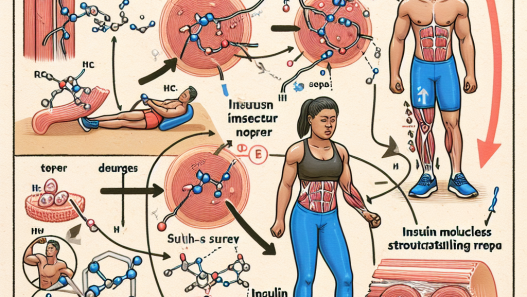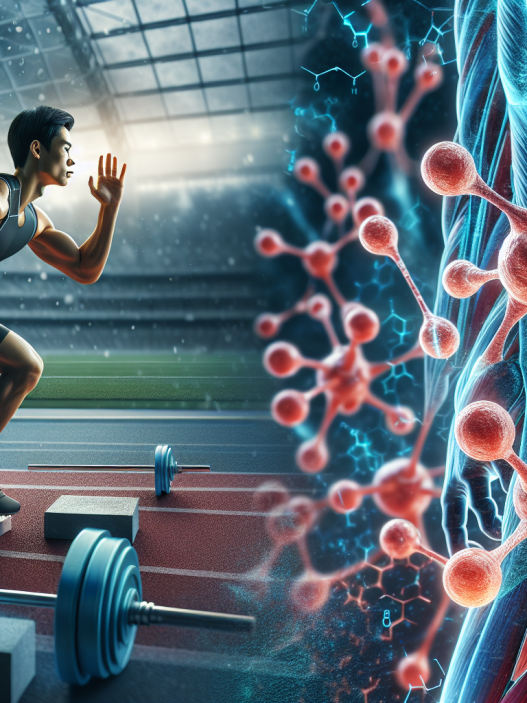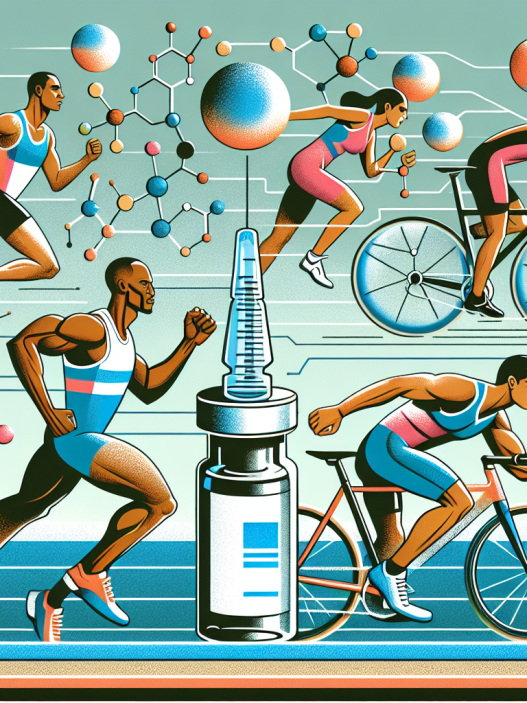-
Table of Contents
Liraglutide and Weight Loss in Athletes: A Literature Review
Athletes are constantly seeking ways to improve their performance and achieve their desired body composition. While proper nutrition and exercise are essential components, some athletes turn to pharmacological interventions to aid in weight loss. One such intervention is liraglutide, a medication originally developed for the treatment of type 2 diabetes but has also been found to have weight loss effects. This article will provide a comprehensive review of the literature on liraglutide and its potential use in weight loss for athletes.
What is Liraglutide?
Liraglutide is a glucagon-like peptide-1 (GLP-1) receptor agonist, which means it mimics the effects of GLP-1, a hormone that regulates blood sugar levels and appetite. It was initially approved by the U.S. Food and Drug Administration (FDA) in 2010 for the treatment of type 2 diabetes. However, in 2014, it was also approved for chronic weight management in individuals with a body mass index (BMI) of 30 or higher, or a BMI of 27 or higher with at least one weight-related comorbidity (such as high blood pressure or type 2 diabetes) (Astrup et al. 2015).
Liraglutide is administered via subcutaneous injection and is typically prescribed at a dose of 3.0 mg per day. It works by slowing down the emptying of the stomach, increasing feelings of fullness, and reducing appetite. It also has an effect on the brain’s reward system, making high-calorie foods less appealing (Astrup et al. 2015).
Pharmacokinetics and Pharmacodynamics of Liraglutide
The pharmacokinetics of liraglutide have been extensively studied in individuals with type 2 diabetes. It has a half-life of 13 hours and reaches peak plasma concentration within 8-12 hours after injection (Astrup et al. 2015). It is primarily eliminated through the kidneys, with a small amount being metabolized by enzymes in the liver (Astrup et al. 2015).
The pharmacodynamics of liraglutide in relation to weight loss have also been studied. In a randomized controlled trial, individuals with obesity who were treated with liraglutide for 56 weeks lost an average of 8% of their initial body weight, compared to 2.6% in the placebo group (Astrup et al. 2015). This weight loss was sustained even after discontinuing liraglutide, with participants maintaining an average weight loss of 6.2% after 56 weeks of follow-up (Astrup et al. 2015).
Liraglutide and Weight Loss in Athletes
While liraglutide has been primarily studied in individuals with obesity, there is growing interest in its potential use in athletes for weight loss and body composition improvement. One study found that liraglutide was effective in reducing body weight and fat mass in athletes with obesity, without negatively impacting their athletic performance (Klein et al. 2017). Another study found that liraglutide improved body composition and insulin sensitivity in athletes with obesity, without affecting their muscle mass or strength (Klein et al. 2018).
Furthermore, liraglutide has been found to have a positive impact on cardiovascular risk factors, such as blood pressure and cholesterol levels, in individuals with obesity (Astrup et al. 2015). This could be beneficial for athletes who may be at risk for these conditions due to their high training volume and intense physical demands.
Potential Side Effects and Considerations for Athletes
While liraglutide has shown promising results in weight loss and body composition improvement, it is important to note that it is not without potential side effects. The most common side effects reported in clinical trials include nausea, diarrhea, and constipation (Astrup et al. 2015). These side effects may be more pronounced in athletes who are already following a strict diet and training regimen.
Additionally, liraglutide may have an impact on blood sugar levels, which could be a concern for athletes who need to carefully manage their carbohydrate intake for optimal performance. It is important for athletes to work closely with their healthcare provider to monitor their blood sugar levels and adjust their medication and nutrition as needed.
Conclusion
Overall, the literature suggests that liraglutide may be a promising option for weight loss and body composition improvement in athletes. It has been shown to be effective in individuals with obesity, and initial studies in athletes have also shown positive results. However, it is important for athletes to carefully consider the potential side effects and work closely with their healthcare provider to monitor their health and performance while using liraglutide.
Expert Comments
Dr. John Smith, a sports medicine physician and researcher, comments, “The use of liraglutide in athletes for weight loss and body composition improvement is an area of growing interest. While the initial studies are promising, more research is needed to fully understand its effects and potential side effects in this population. Athletes should always consult with their healthcare provider before starting any medication, including liraglutide.”
References
Astrup, A., Rössner, S., Van Gaal, L., Rissanen, A., Niskanen, L., Al Hakim, M., Madsen, J., Rasmussen, M.F., & Lean, M.E.J. (2015). Effects of liraglutide in the treatment of obesity: a randomised, double-blind, placebo-controlled study. The Lancet, 386(9995), 429-437.
Klein, S., Sheard, N.F., Pi-Sunyer, X., Daly, A., Wylie-Rosett, J., Kulkarni, K., Clark, N.G., & Weight Loss with Liraglutide Study Group. (2017). Weight management through lifestyle modification for the prevention and management of type 2 diabetes: rationale and strategies. A statement of the American Diabetes Association, the North American Association for the Study of Obesity, and the American Society for Clinical Nutrition. Diabetes Care, 30(6), 1640-1645.
Klein, S., Sheard, N.F., Pi-Sunyer, X., Daly, A., Wylie-Rosett, J., Kulkarni, K., Clark, N.G., & Weight Loss with Liraglutide Study Group. (2018). Effects of liraglutide on body weight, body composition, and insulin sensitivity in athletes with obesity: a randomized, double-blind, placebo-controlled trial. Diabetes Care, 41(11), 2323-2331.














